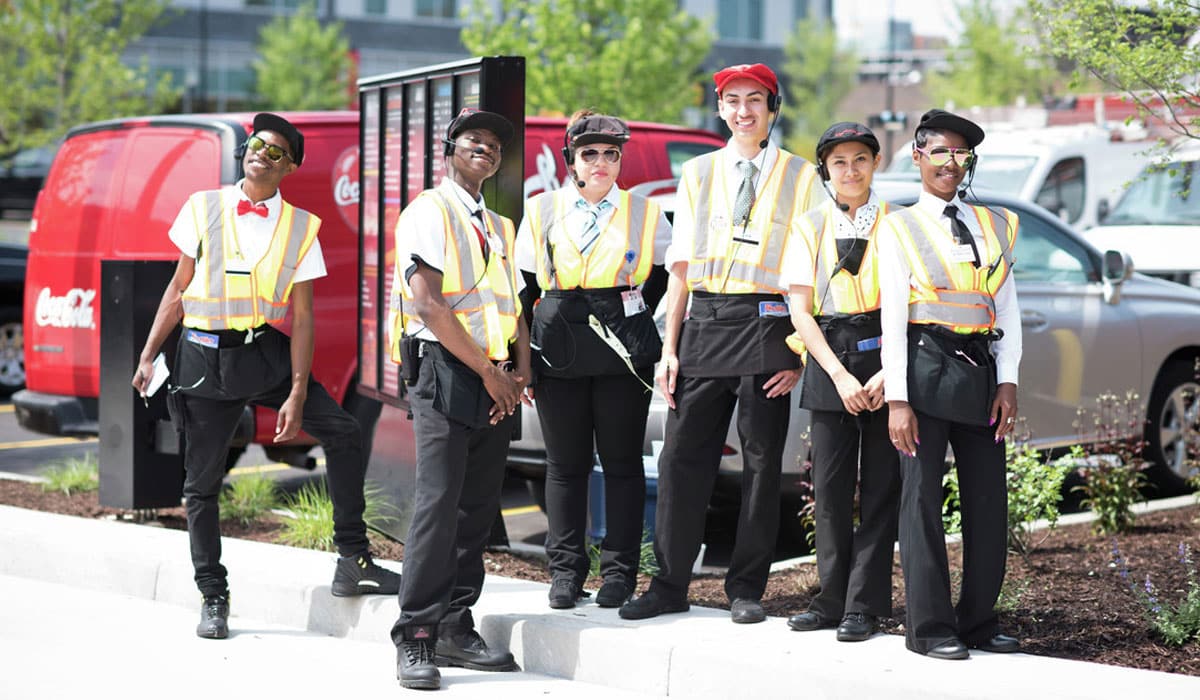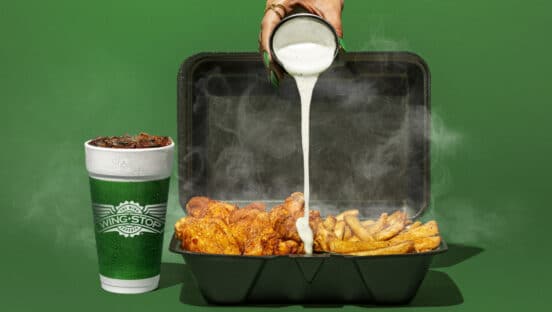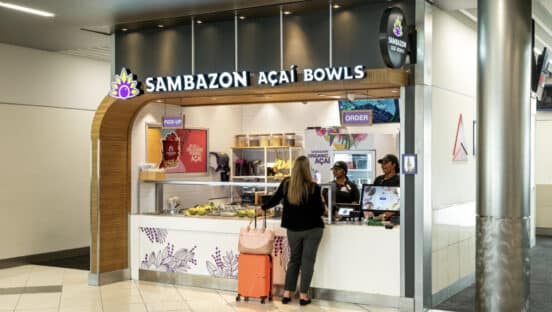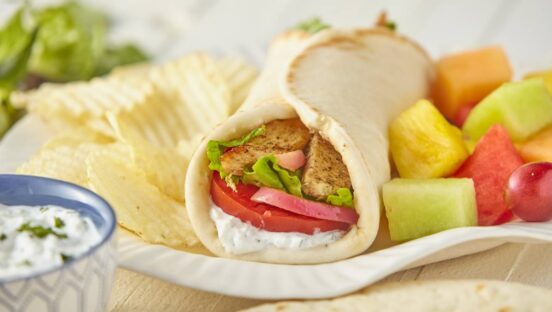It’s not often that the CEO of a fast-casual brand is excited about a 20 percent drop in revenue, but these are no ordinary times. In the face of the COVID-19 pandemic, Michael Osanloo is elated to see the way Portillo’s Hot Dogs has performed.
“It feels bizarre to talk about a 20 percent dip in sales and be proud of it, but I think everyone knows that in the current climate it’s a relative success story,” says Osanloo, CEO of Portillo’s Hot Dogs, a 62-unit brand based in Chicago, with stores across eight states. “Our core values are family, greatness, energy, and fun, and those concepts have guided everything that we’ve done as an organization.”
Osanloo has been impressed with the way his team has responded to all of the pivots that have been required across the brand’s footprint. They will roll out initiatives in the morning and have them up and running at each store by the afternoon. For that, Osanloo credits management and employees on the ground, and their willingness to be agile during these trying times. He also takes pride in the fact that Portillo’s hasn’t laid off a single employee that did not ask to be furloughed due to their own health concerns.
“One of the philosophies we’ve taken is that we’re going to prioritize our team members and our guest safety first and foremost,” Osanloo says. “The local rules and regulations for each location—which at the beginning of all of this, varied widely, but have more recently become closer to uniform—those rules have been treated as the absolute minimum that we are going to do. We had markets that didn’t close for dine-in and we said, ‘Hey, we need to, because it’s the right thing to do.’”
Along with that has come relative success, thanks to some savvy business decisions made by the corporate offices of Portillo’s Hot Dogs, which own all 62 of the brand’s units. Before the pandemic, a typical Portillo’s store saw 40–50 percent of their sales come via patrons dining in. Like just about every restaurant in the industry, that number has dropped to zero during the pandemic, and Portillo’s has focused its attention on the innovative drive-thru operations that have been a lynchpin for the brand since it launched 55 years ago. They’ve seen drive-thru sales shoot up 60 percent over the past six weeks.
How have they done it? A hallmark of the brand’s success in the past, Osanloo believes Portillo’s is one of the first brands in the country to have implemented drive-thru runners that move down the queue of cars in drive-thru lanes to take orders, getting tickets to the kitchen as quickly as possible. That has positioned Portillo’s as uniquely suited for the coronavirus crisis.
“Even before this, one undeniable trend for fast casuals and quick-service restaurants has been that people want to eat on their own terms,” Osanloo says. “They want to come through a drive thru, or have food delivered to them. Less and less people want to commit to a restaurant. What we’re seeing is that if restaurant companies want to be successful, they have to commit to dealing with how to provide off-premises dining in unique ways.”
With no employees required to man the front-of-house operations, Portillo’s has cross-trained staff and gotten to the point where eight or nine runners are moving amongst cars in the drive thru during peak hours. Often, guests are putting in orders before they even reach a menuboard, but Portillo’s has an answer for that, too, as runners are equipped with menus for guests to work off of. Even if the line is backed up 30 or 40 cars, Osanloo estimates that a maximum wait time is 5 or 6 minutes in a Portillo’s drive thru.
Another unique feature of the Portillo’s drive thru is a two-lane system that allows for cars to peel off and exit the drive thru should they get their food before cars ahead of them do. That happens frequently, too—again, that’s where the runners come in, walking out to cars and handing bags of food to guests as soon as they are ready.
In addition to beefed up drive-thru operations, Portillo’s has seen success with third-party delivery both before and during the pandemic. In a move that has created another revenue stream, the brand partnered with UberEats at the beginning of April.
“We have had an outstanding relationship with DoorDash and GrubHub for some time now,” Osanloo says, “but one of the best things we did was add Uber Eats to our repertoire. UberEats seems to bring in a different set of clientele—it’s not redundant by any means—and it’s been an excellent accelerant for our third-party delivery operations.”
All of this has added up to the modest dip in sales that has Osanloo confident his brand will emerge from all of this unscathed. Again, he credits those core values that, in a serendipitous twist, the company came up with late last year and had started rolling out earlier this year: family, greatness, energy, and fun.
“That’s guided everything that we’ve done,” Osanloo says. “If you’re an organization that lacks a ‘true north’ in values, you don’t know exactly what your goals are, and that’s going to hurt you. We’re really fortunate that we clearly communicated those goals to all of our team members, and I think that’s really helped our entire organization shine during these difficult times.”






